If you’ve been baking for a while, you know that the key to the perfect pie crust is a well-baked pastry. Mess that up, and your entire endeavor will go in vain. You could start over, but if you cannot troubleshoot when the pastry is too crumbly, all your efforts will be futile.
All you wanted was a tasty pastry, but now you are wound up with a bad one and a huge mess that needs to be cleaned up. But we will put an end to all your worries with our tips and tricks on what to do when pastry is too crumbly.
This thorough guide will provide you with all the necessary tips required to ensure that the next time you make a pie, tart, or croissant, the pastry won’t be too crumbly.
Keep on reading for more details!
What Causes a Pastry to be Too Crumbly?
Knowing the reasons behind the cause makes it easier to fix it. You can work with the crumbled dough in some circumstances, while other times, you might have to get a fresh start.
Here is a list of reasons why your pastry is too crumbly:
Too Much Flour
Measuring the ingredients right plays a vital role in getting the recipe to come together. Add just a bit more flour than the required amount, and your dough will be extremely dry.
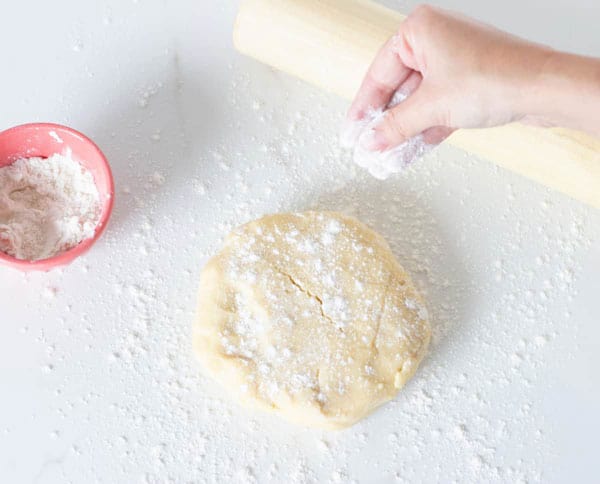
This may sound very simple, but it is the most common problem faced by pastry makers. Read the measurements correctly before putting it in the mixture.
Wrong Type of Flour
Besides using the appropriate quantity, remember to use the appropriate kind. Usually, self-raising flour is suggested in all recipes instead of an all-purpose one. This is largely important to maintain because the water needs enough time to sink into the dough, or the dough making process will be incomplete.
Mixing Wrong
To do this step properly, all you need is patience and strong hands because there will be a lot of mixing for a long time. Mixing the dough guarantees that all the gluten in the flour is formed fully.
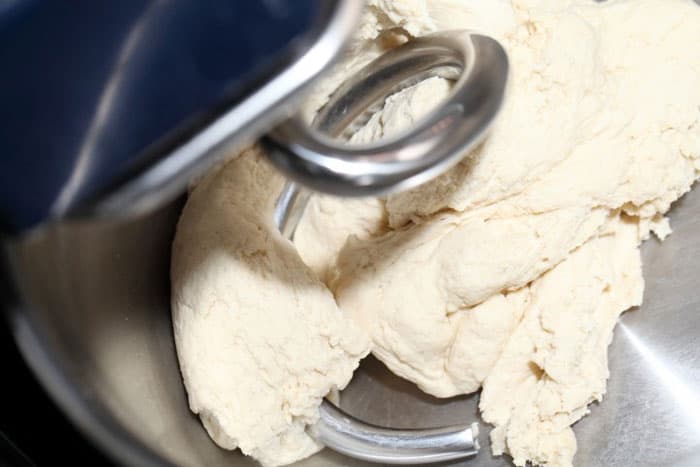
Gluten helps to shape the dough as well as contributes to its rise. Therefore, if it is not mixed well, the pastry will inevitably shrivel and ultimately be of no use. Take all the time you need when it comes to mixing, and you will thank yourself later.
Too Much Salt
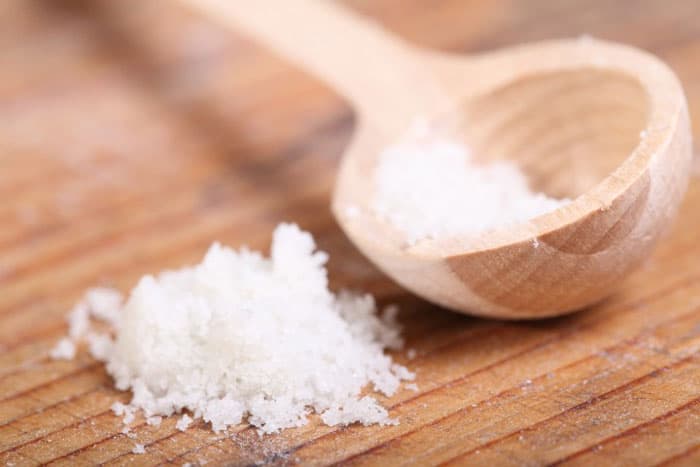
Not only will salt make your pastry salty but also take away all the moisture from the dough, thereby making it dry. A word of advice would be to have measuring spoons so you can put an accurate amount to the mixture rather than playing a guessing game.
Less Water
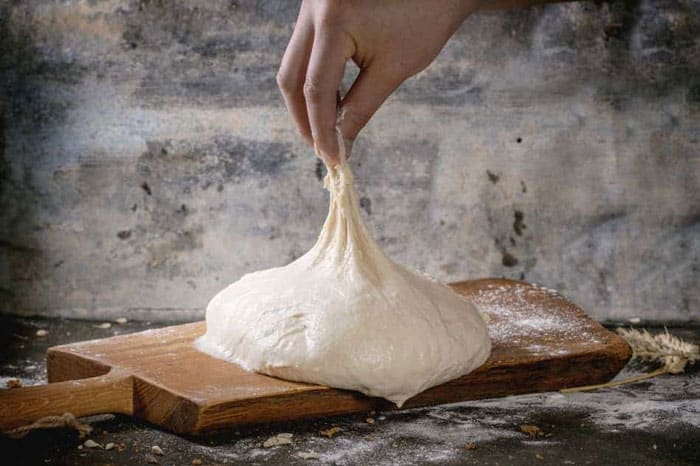
Unfortunately, too much or too little water can be a culprit behind an imperfect dough. The dry dough results from less water, while the sticky dough is caused by too much water. Hence, you should try to avoid both. A considerable amount of water is required to mix both the fat and flour through and through.
Time
We always suggest that baking should be done only a few hours prior to the event. If you think making your dough a couple of days ahead will save your time, you cannot be more wrong. The dough is susceptible to drying out quicker than normal when it is stored away in a refrigerator.
Type of Weather
Yes, flawless pastry dough also depends on the weather because it is affected by the humidity. Making dough in the summer crumbles it too easily than in the winter. Some people opt to add more flour, but that will not solve the problem.
What you need to do is roll the dough smoothly in different directions on a flat surface for a couple of minutes.
What to Do When Pastry Is Too Crumbly?
Bear in mind that as much as you do not want a crumbly pastry, you also do not want one with shrunken in size. Both will ruin the dessert item in the making, or it might be so bad you will be forced to throw it away. The sweet spot is somewhere in the middle.
Here are three foolproof ways to fix the pastry without any fuss:
The Dough with Water Method
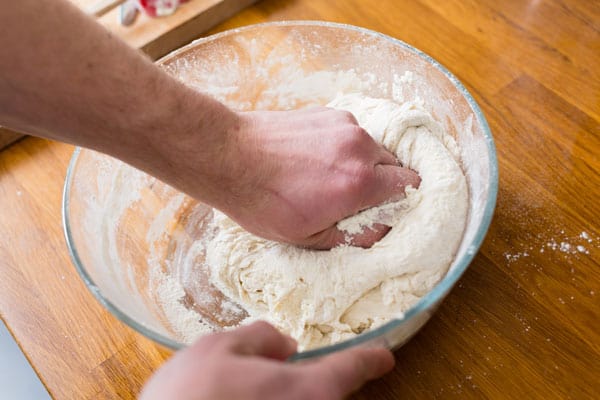
- Dip your fingers into a small bowl of cold water.
- Then, use your fingers to sprinkle some of the water, about a teaspoon, into the dough.
- Now start kneading it gently and slowly with two hands.
- You will be able to confirm whether the pastry is less crumbly than before from its texture.
- Repeat the process until the dough is no longer falling apart. Your dough should bind together in order to form a good pastry. Do not use cups or spoons to add the water to the dough because that will result in the wet dough.
The Rolling Pin Method
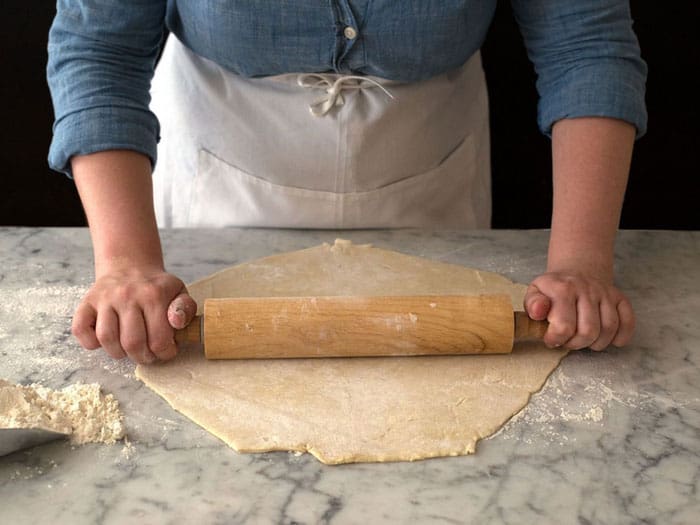
Another trick to fixing a crumbly pastry is to let it sit for a few minutes.
- Make sure the kitchen is at room temperature because a high temperature melts down the fat in pastry.
- To prevent this from happening, wait for the butter to soften, then sprinkle some flour over the surface.
- Now, roll it steadily with a rolling pin. Turn the pastry around after every two rolls. This will fix your crumbly pastry problem.
The Leftovers Method
- The worst thing to happen is your pastry crumbling when you are lining your tin.
- This is why you should have some extra pastry as leftovers that you can add to the tin in parts where the pastry seems to collapse.
Make the Perfect Pastry Today!
Now that you know what to do when pastry is too crumbly, it shouldn’t be a big deal for you to make the perfect one.
When you put your apron on and start the baking process, keep a cool head so you can pay attention to every little detail. Do not lose your focus. Investing more time and putting in some extra work will be worthwhile when the baked goods are delicious. You won’t bake a very appetizing dish if you rush things too much.
In case you do get something wrong on your next try, read this guide again to solve it on one go.
Have a good time baking and an even better one eating!

